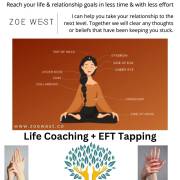Description
Intimacy in your relationship is a crucial element that can significantly impact your overall well-being and satisfaction. It refers to the deep emotional and physical connection between partners that allows them to feel close and connected. However, many couples struggle with intimacy in their relationship, which can lead to feelings of disconnection, frustration, and loneliness.
To cultivate intimacy in your relationship, it's important to prioritize communication and actively work on strengthening your emotional and physical connection. This can involve engaging in deep conversations, sharing your thoughts and feelings openly, and being vulnerable with your partner.
Another way to build intimacy in your relationship is by prioritizing physical affection and sexual intimacy. This can involve engaging in regular physical touch, such as hugging, holding hands, or cuddling, and being open to exploring each other's desires and needs in the bedroom.
It's also essential to make time for each other and engage in activities that you both enjoy. This can help create positive shared experiences that can enhance your emotional bond and deepen your connection.
In some cases, a lack of intimacy in your relationship can be a sign of deeper issues, such as unresolved conflicts, mental health issues, or differences in desires and needs. If you're struggling with intimacy in your relationship, it's important to seek professional help to work through these issues and strengthen your connection with your partner.
Remember, cultivating intimacy in your relationship is an ongoing process that requires effort and commitment from both partners. By prioritizing communication, physical affection, and shared experiences, you can build a stronger, more fulfilling connection with your partner and enhance your overall well-being.
Intimacy is a fundamental aspect of any healthy and fulfilling relationship. It refers to the deep emotional and physical connection that two people share. While many people associate intimacy solely with physical affection and sexual intimacy, intimacy can manifest in different ways, including emotional and intellectual connections.
In an intimate relationship, both partners are emotionally invested in each other's well-being, and they prioritize each other's needs and desires. The level of intimacy in a relationship can vary depending on the couple's dynamic and individual preferences.
Physical intimacy refers to the act of physical affection, such as hugging, holding hands, kissing, or sexual activity, that enhances the bond between partners. While physical intimacy is an important component of many intimate relationships, it is not the only way to establish intimacy.
Emotional intimacy is another type of intimacy that can be achieved in a relationship. Emotional intimacy is the ability to share and connect with your partner on a deep emotional level. It involves being vulnerable, open, and honest with your partner and feeling safe and secure in doing so.
Intimacy can be particularly important in a marriage as it enhances the emotional bond between partners, which can increase their sense of commitment and satisfaction with the relationship. However, a lack of intimacy in marriage can lead to feelings of disconnection, frustration, and loneliness.
Examples of intimacy in a relationship include sharing personal stories, engaging in deep conversations, expressing affection through physical touch, and engaging in sexual activity. However, the level of intimacy in a relationship is subjective and can vary depending on the couple's preferences and comfort levels.
In a healthy intimate relationship, both partners actively seek to foster intimacy through regular communication, prioritizing each other's needs, and being open to vulnerability. However, in some cases, a lack of intimacy in a relationship can be a sign of deeper issues, such as emotional disconnect, unresolved conflicts, or mental health issues. Couples facing these challenges may benefit from seeking professional help to work through their issues and strengthen their relationship.
Features
Reviews
Comments
Claim this business page.
This business has not yet been claimed by the owner or a representative.Opening Hours
Manager

Posted 1 year ago
Similar
Nearby
FREE MINI-COURSE - Introduction to EFT Tapping
Wellington Point, Queensland
Zib Digital - SEO Brisbane
Brisbane, Queensland










